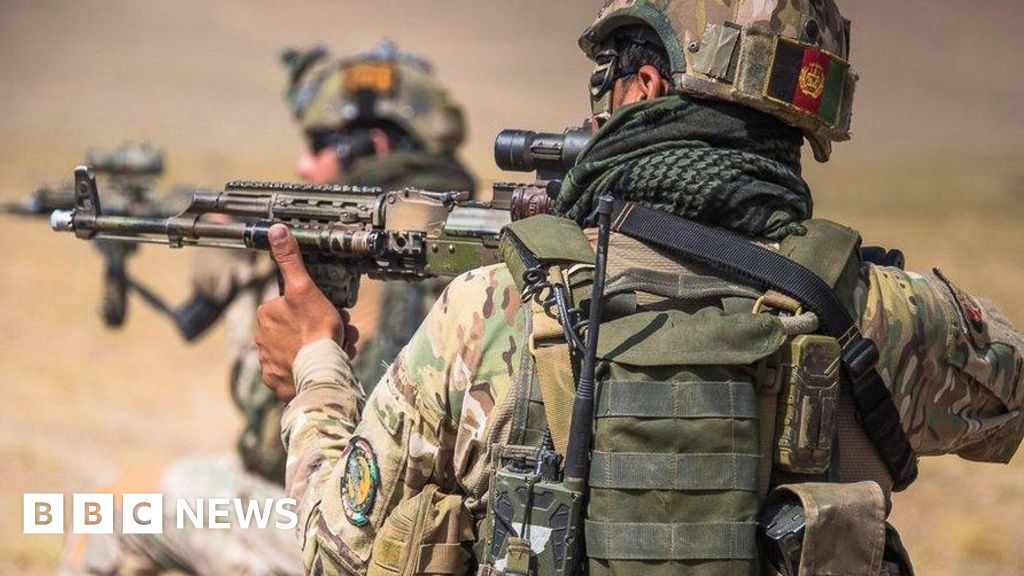

The UK Ministry of Defence has acknowledged for the first time that applications for resettlement from over 2,000 Afghan commandos, who provided credible proof of their service alongside UK Special Forces, have been denied. These Afghan units actively partnered with the Special Air Service (SAS) and Special Boat Service (SBS) during numerous high-risk missions against the Taliban.
Reports indicate that UK Special Forces command has turned down every submission from Afghan commandos presented for sponsorship, despite their integral role in operations with British forces. Previously, the Ministry of Defence had claimed that there wasn’t a systemic approach to refuse applications from these specialized units, referred to as the Triples. However, the BBC has yet to uncover any instances where these applications were favored by UK Special Forces.
When questioned about the support offered to Afghan commandos, the Ministry of Defence did not provide an answer. The Triples, officially designated as CF 333 and ATF 444, were formed, trained, and financially supported by UK Special Forces, playing a crucial role in operations throughout Afghanistan. Following the Taliban’s takeover in 2021, these commandos faced severe threats and became eligible for resettlement in the United Kingdom.
The rejection of their applications has sparked significant controversy, coinciding with a public inquiry in the UK that’s investigating claims of war crimes reportedly committed by British Special Forces during operations in Afghanistan, where the Triples were also deployed.
This inquiry possesses the authority to summon witnesses residing in the UK, but not non-UK individuals living abroad. If they had been resettled, former Triples members could have been compelled to offer crucial testimony regarding the investigations. Last year, BBC Panorama revealed that UK Special Forces were granted veto authority over the submissions, leading to the denial of asylum for these Afghan commandos. This revelation incited outrage among former SAS members and others who had previously collaborated with the Afghan units.
The Ministry of Defence initially denied the existence of this veto power, labeling the BBC’s findings as misleading. However, then-Defence Minister Andrew Murrison later informed the House of Commons that the government had misled parliament regarding this issue.
The revelation of over 2,000 rejections was brought to light in court proceedings earlier this month, stemming from a legal challenge initiated by a former Triples member. Lawyers for the Ministry of Defence sought a restriction order to limit media coverage on certain aspects of the case but withdrew their application recently under scrutiny.
Documents uncovered in court indicated that while the Ministry of Defence was denying the veto, it was aware that every rejection from UK Special Forces might not have been justified and required independent reassessment. Mike Martin, an MP on the Defence Select Committee and a former British Army officer in Afghanistan, expressed deep concern over the rejections, suggesting that UK Special Forces may have obstructed applications to protect against potential testimonies regarding alleged war crimes currently under investigation.
Johnny Mercer, a former Conservative MP who served alongside British Special Forces, reported that he had encountered former members of the Triples who recounted “horrific” allegations of murder linked to UK forces. Mercer emphasized the need for these Afghan commandos to contribute valuable evidence to the inquiry.
The Ministry of Defence is currently reviewing all 2,022 resettlement applications that were submitted and subsequently denied by UK Special Forces. The review was initially projected to take 12 weeks but has yet to reach a conclusion over a year later. Some of the refusals have already been overturned, allowing certain former Triples members to relocate to the UK. However, the Ministry of Defence has withheld information from Afghan commandos about their application status, requiring them to reach out proactively due to many being in hiding in Afghanistan. Reports indicate that dozens have endured violence or been killed by the Taliban since the group’s resurgence.
While some decisions have been reversed, a former Triples officer noted that delays have had dire consequences, even leading to fatalities. He expressed feelings of betrayal among Afghan commandos who had fought alongside British Special Forces and emphasized the necessity for accountability from those who rejected their applications.
As the Ministry of Defence faces legal challenges regarding the review, a senior member of the Triples, now in the UK, is advocating for those still in Afghanistan. Their lawyer, Dan Carey, highlighted the urgency of the matter, pointing out that some applicants have perished while awaiting these significant protective decisions.
Carey asserted that there are individuals believing they are part of the Triples review, while undisclosed criteria may suggest their applications aren’t even being addressed. Legal representatives for the former Triples member criticized the Ministry of Defence for inadequate disclosure, claiming it failed to provide essential documents regarding the decision-making process behind the denials.
Recent evidence revealed in court indicated that some applicants who worked with UK Special Forces post-2014 were summarily rejected without referral to UKSF headquarters. The Ministry of Defence has yet to provide a justification for this policy, which remains undisclosed to the applicants. However, officers associated with UK Special Forces have stated that the Triples continued their collaboration on operations even after 2014.
The Ministry of Defence reasserted its position, stating that no evidence exists to suggest any part of its department aimed to hinder former Afghan special units from providing testimony regarding the inquiry.
If you have information related to this situation that you wish to convey, please reach out using SecureDrop, a secure and anonymous whistleblowing service, or through the Signal messaging app that ensures data protection.








